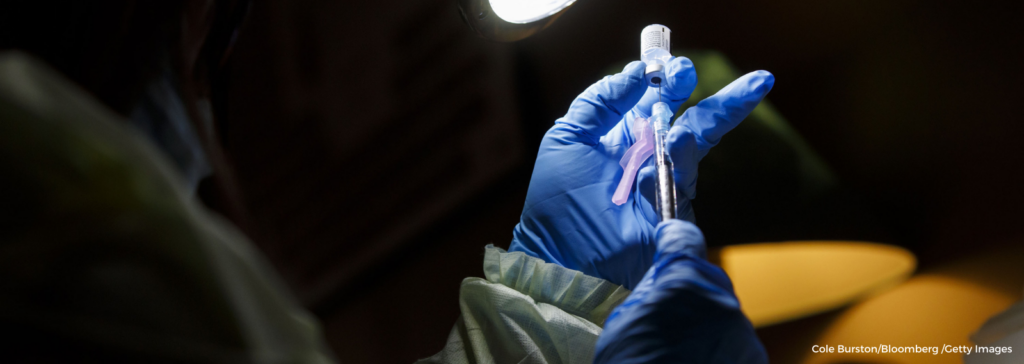Updates & Press
Featured | April 28, 2021
Immunizations, the Fight Against Polio, & App
Author | MedGlobalComms

By Andrew Moran, MedGlobal Policy & Advocacy Intern
The COVID-19 pandemic has generated international focus on the critical role vaccines play in managing outbreaks and saving lives. The global effort to develop new vaccines was accelerated by massive public and private funding and international partnerships that resulted in multiple vaccines in record time. However, the successful rollout of vaccination campaigns have been marred by barriers to access and widespread vaccine skepticism. In Pakistan, Sudan, and Yemen, long-running efforts to eradicate polio highlight these challenges and provide a critical framework for navigating mass vaccination campaigns.
According to the World Health Organization, more than one billion children received vaccinations over the past decade. These immunizations are estimated to save between four and five million people each year and have led to the near eradication of incurable diseases like polio. However, even momentary lapses in immunizations – caused by conflict, economic crisis, mass displacement, or competing health priorities – can leave entire regions vulnerable to outbreaks of previously controlled diseases.
In Pakistan, one of the few remaining countries where polio is endemic, vaccination campaigns were halted for four months due to the COVID-19 pandemic. This had a devastating impact on the fight against polio at a time when new polio cases were surging. In 2018, there were just 12 reported cases of wild polio. A year later, there were at least 144 new cases and more than 80 cases were reported in 2020. The surge in cases is attributed to the spread of conspiracy theories surrounding vaccines and attacks against health workers that disrupted campaigns. Despite facing new hurdles imposed by COVID-19, health officials in Pakistan worked with communities to combat misinformation and carried out six campaigns in 2020. In January 2021, Pakistan mobilized 285,000 health workers to vaccinate 40 million children.
Pakistan’s experience running polio vaccination campaigns has already proved invaluable in its effort to manage the COVID-19 pandemic. In addition to repurposing existing infrastructure and surveillance networks to carry out vaccinations and monitor outbreaks, Pakistan also benefits enormously from the trust built with communities over previous campaigns. Key partnerships with community leaders, sports associations, media organizations, and religious leaders played an essential role in overcoming vaccine hesitancy for polio and will remain vital for COVID-19 and all other future immunization campaigns.
Outbreaks of vaccine-derived polio, a consequence of low vaccination rates, have also occurred recently in Sudan and Yemen. Both countries recorded their last cases of wild polio in the 2000s, but are now vulnerable to its return. In 2019, Sudan carried out a national vaccine campaign for polio and measles. At the time, no cases of polio had been reported in over a decade. However, the outbreak of COVID-19, combined with mass displacements, an economic crisis, and weak health system, led to disruptions in immunizations and the emergence of 46 new cases of polio. In conflict-affected Yemen, 15 cases of polio were also detected in the northwest after immunization campaigns were stalled for more than two years. In response to the outbreaks, both countries partnered with the UN to carry out vaccination campaigns. As Sudan and Yemen begin their COVID-19 campaigns, they can rely on lessons learned and pre-existing partnerships to inform and bolster their work.
The rapid development of the COVID-19 vaccine relied on decades of research, investment, and partnerships; the same global engagement is required to ensure everyone has access to it. While services providing direct access to vaccines, such as MedGlobal’s Mobile Teams in Yemen, are critical to boosting immunization campaigns, ensuring continuous access to medical services is just as important. In many cases, vaccine hesitancy stems from a lack of basic health services. Communities that are historically underserved or ignored may be more susceptible to rumors and misinformation when vaccines suddenly appear. As MedGlobal continues to engage with communities in Pakistan, Sudan, Yemen, and other countries around the world, we are working to invest in long-term, sustainable health care to build trust and address both current and future health needs.


